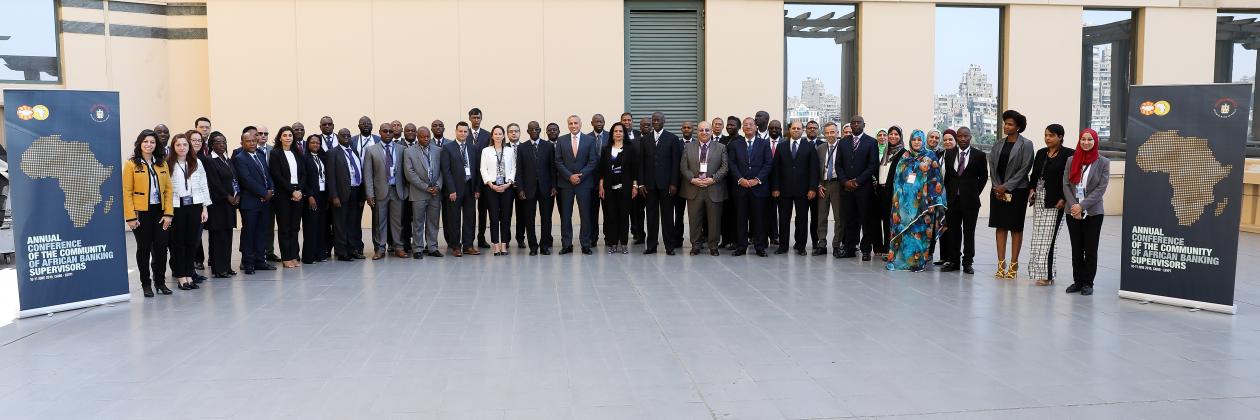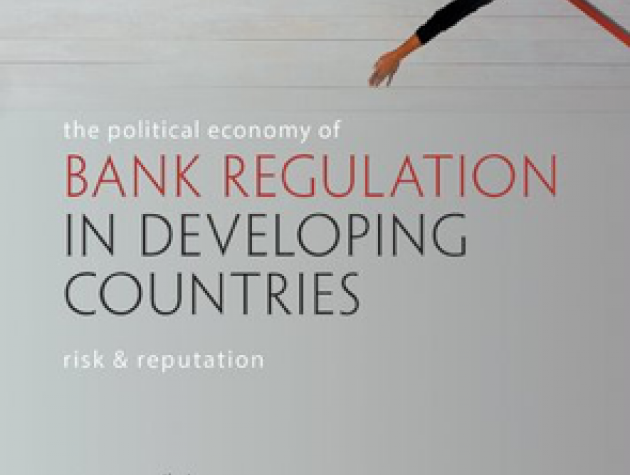Emily Jones presents research at the Community of African Banking Supervisors, Egypt
GEG's Director, Emily Jones, was invited by the Community of African Bank Supervisors to present at their annual meeting in Cairo, Egypt, on 10 June 2019. The meeting was hosted by the Central Bank of Egypt and brought together heads of banking supervision from 25 different African countries and regional bodies, and representatives from international organisations including the Financial Stability Institute and World Bank. Participants discussed new developments and challenges facing banking regulation on the continent, focusing on the implementation of Basel II and III standards, the implications of fintech and cyber-risk for banking regulation and supervision, and de-risking and withdrawal of correspondent banking relationships.
Emily spoke alongside Thorsten Beck and senior officials from the Bank of Egypt about the adoption and implementation of Basel II and III in developing countries. Emily challenged the notion that Basel standards are ‘international best practice’, highlighting the challenges that implementing the full suite of Basel standards poses for developing countries, particularly low income developing countries. She shared the findings of her research project, which reveal how political economy dynamics create very strong incentives for regulators in developing countries to converge on international standards even when the standards are poorly-suited to their regulatory context. In particular, governments implement standards in order to signal the attractiveness of their financial sectors and banks to international investors, to reassure host regulators that their banks are soundly regulated at the parent level, and to facilitate communication between home and host supervisors.
Recognising that reputational signalling is important for governments in developing countries, she proposed that regulators adopt a proportionate approach to the implementation of international standards. For instance, regulators can adopt the standards selectively, implementing only those aspects that are well-suited to the local context, and regulators can opt to apply them only to the large internationally active banks, rather than all commercial banks. Indeed, a proportionate approach is taken by regulators in industrialised and emerging economies that are members of on the Basel Committee. She welcomed the initiatives of the Committee of African Bank Supervisors to facilitate peer-learning among regulators and proposed that the Committee develop recommendations on how to adopt a proportional approach to the implementation of international standards on the African continent.







